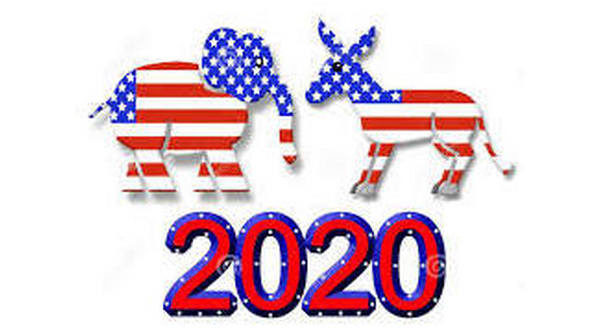
JEFFERSON CITY, Mo. (AP) – Missouri is taking its turn in the presidential race spotlight head of the state’s primary, with visits from former Vice President Joe Biden and Sen. Bernie Sanders over the next three days.
Missouri, once a bellwether state but now predictably red, nevertheless has a diverse Democratic electorate that could mirror that of the party nationwide.
“Missouri is kind of a microcosm for the whole country when we’re looking at how this is going to turn out for us,” said House Democratic Minority Leader Crystal Quade, of the southwestern Missouri city of Springfield. She said the mix of Democrats in big cities and rural areas in the state reflect the diverse ideology of the Democratic Party nationally, not just in Missouri.
Urban centers including Kansas City and St. Louis – as well as college towns such as Columbia, where the University of Missouri’s flagship campus is – are home to pockets of progressives. But Democrats tend to be more moderate in much of Missouri’s suburbs and rural areas.
Both of the remaining front-runners for the nomination are traveling to Missouri in advance of the primary to win votes. Biden is holding events Saturday in Kansas City and St. Louis, and Sanders will be in St. Louis on Monday.
Local election officials are projecting 40% of Missouri’s registered voters will cast ballots in Tuesday’s primaries. Those forecasts range from a low of 14% in southern Missouri’s Ripley County to a high of 80% in northern Missouri’s Randolph County. Voters can choose a ballot for the Republican, Democratic, Green, Constitution or Libertarian parties.
Democrats will award 68 pledged delegates based on election results, in addition to 10 superdelegates, and Republicans will award 54.
Missouri had voted for the winning presidential candidate every time but once in the past century, when it picked Adlai Stevenson instead of President Dwight Eisenhower in 1956. The streak ended when the state narrowly sided with Republican John McCain over Democrat Barack Obama in 2008.
Despite recent Republican domination in general elections, Missouri’s Democratic presidential primary has remained an accurate forecast of the partys eventual presidential nominee.
During the 2008 primary, Obama eked out a victory against former Secretary of State Hillary Clinton. Both candidates won 36 delegates, but Obama beat Clinton in the popular vote. Clinton won with a slightly larger margin of victory in 2016, claiming 36 delegates to Sanders’ 35.
Linda Schilly, who is chairwoman of Jefferson County’s Democratic Central Committee in the outer St. Louis suburbs, said she’s leaning toward voting for Biden. Schilly said she likes Sanders’ ideas to wipe out college debt and expand health care, but she’s not sure how realistic or financially feasible those goals are.
“Tell me what you can actually do,” Schilly said. “Don’t give me a pie in the sky just because you think that’s what I want to hear.”
But Reece Ellis, president of the College Democrats of Missouri and a political science student at Truman State University in northern Missouri, said he’s worried that Biden has “liabilities” that could hurt his chances against Trump. He cited Biden’s role in crafting tough-on-crime laws that contributed to mass incarceration, particularly of people of color.
After his Super Tuesday victories, Biden quickly amassed a list of endorsements from establishment Democrats in Missouri, including former Gov. Jay Nixon, who had previously endorsed Michael Bloomberg. Biden also picked up endorsements from former Gov. Bob Holden and members of the Carnahan family – former U.S. Sen. Jean Carnahan, former U.S. Rep. Russ Carnahan and former Secretary of State Robin Carnahan.
Idaho, Michigan, Mississippi, North Dakota and Washington also are holding primary elections or caucuses Tuesday, with a lot of attention focused on Michigan and its 125 delegates.
WebReadyTM Powered by WireReady® NSI










